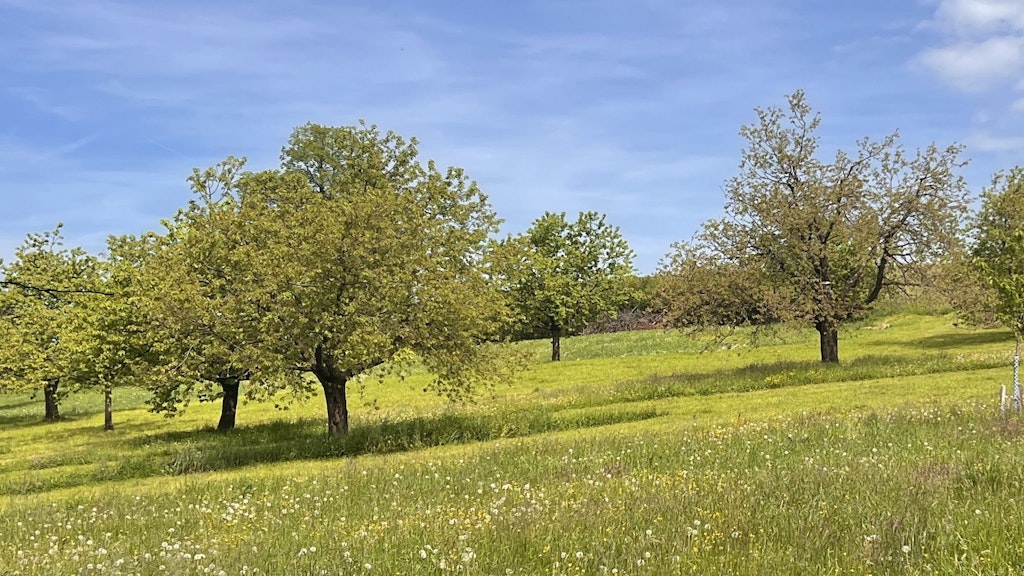Das BLW handelt jetzt für morgen
Wir setzen uns dafür ein, dass Bäuerinnen und Bauern nachhaltig und auf den Markt ausgerichtet produzieren. Eine multifunktionale, wertschöpfende Land- und Ernährungswirtschaft ist wichtig. Im Fokus des BLW steht zudem die Ernährungssicherheit für die Schweizer Bevölkerung.

News
Unsere Schwerpunkte

Agrarpolitik 2030+
Die Erarbeitung der nächsten Agrarpolitik wurde aufgegleist. Basierend auf einem Auftrag des Parlaments schafft das BLW die Grundlagen für die nächste Agrarpolitik bis 2030 (AP30+).

Direktzahlungen
Der Bund fördert die gemeinwirtschaftlichen Leistungen der Landwirtschaft mit Direktzahlungen.

Einfuhr
Für die Einfuhr von Agrarprodukten sind teilweise Bewilligungen erforderlich und Zollvorschriften einzuhalten. Anhand der Zolltarifnummer kann die Bewilligungsstelle eruiert und mögliche Zollkontingente für die Einfuhr eingesehen werden.

Nachhaltigkeit
Nachhaltigkeit bedeutet, die Bedürfnisse der Gegenwart zu befriedigen, ohne die Möglichkeiten zukünftiger Generationen einzuschränken. Dabei werden ökologische, soziale und ökonomische Ziele gleichermassen verfolgt.

Biodiversitätsbeiträge
Der Bund zahlt Beiträge für eine angepasste Nutzung der Flächen und fördert und erhält damit einheimische Arten und ihre Lebensräume in der Landwirtschaft.

Tierische Produkte
Tierische Produkte sind für die Schweizer Landwirtschaft sehr wichtig, sie generieren mehr als die Hälfte des landwirtschaftlichen Produktionswerts.
Medienmitteilungen
Senkung der US-Zusatzzölle tritt rückwirkend in Kraft
Die USA begrenzen den pauschalen Zusatzzoll auf Importe aus der Schweiz auf maximal 15%. Dies gilt rückwirkend auf den 14. November 2025. Im Gegenzug senkt die Schweiz Importzölle auf bestimmte Fisch- und Agrarprodukte gegenüber den USA. Grundlage bildet die am 14. November 2025 publizierte Absichtserklärung zwischen der Schweiz, Liechtenstein und den USA.
Bundesrat verabschiedet Bericht zum Gewässerschutzprogramm in der Landwirtschaft
Der Bundesrat hat am 5. Dezember 2025 einen Bericht zur Erhöhung der Wirksamkeit des Gewässerschutzprogramms in der Landwirtschaft verabschiedet. Darin legt er den Beitrag des Gewässerschutzprogramms an der Sanierung belasteter Gewässer dar und zeigt Möglichkeiten auf, wie das Programm vereinfacht werden könnte.
Bund investiert in 33 Ideen für die Räume von morgen
Mit den Modellvorhaben Nachhaltige Raumentwicklung fördert der Bund lokale, regionale und kantonale Akteurinnen und Akteure, die versuchen, mit neuen Methoden aktuelle Probleme zu lösen. Für die nächsten vier Jahre hat der Bund für 33 Projekte insgesamt knapp 4,3 Millionen Franken gesprochen.
Kontakt und Standort
Schwarzenburgstrasse 165
Schweiz - 3003 Bern

